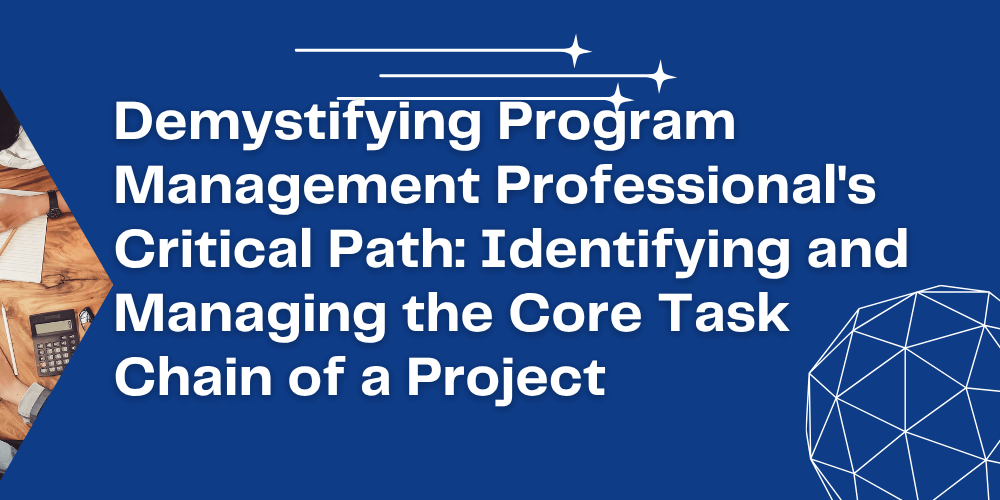TRUSTED BY THE SMARTEST TEAMS IN THE WORLD FOR CERTIFIED CANDIDATES
SPOTO Blogs
Useful learning materials to become certified IT personnel
-
- 522
- SPOTO
- 2025-08-05 15:13
-
- 805
- SPOTO
- 2025-08-04 15:11
-
- 525
- SPOTO 2
- 2025-08-04 14:55
-
- 702
- SPOTO 2
- 2025-08-04 14:40
-
- 610
- SPOTO
- 2025-08-01 15:20
-
- 662
- SPOTO 2
- 2025-08-01 15:09
-
- 724
- SPOTO 2
- 2025-08-01 15:02
-
- 538
- SPOTO 2
- 2025-07-31 16:14
-
- 989
- SPOTO 2
- 2025-07-31 16:09
TRUSTED BY THE SMARTEST TEAMS IN THE WORLD FOR CERTIFIED CANDIDATES
SPOTO Blogs
Useful learning materials to become certified IT personnel
-
- 522
- SPOTO
- 2025-08-05 15:13
Table of Contents1. Certified Ethical Hacker certification details2. Benefits of CEH certification for career3. What side jobs can start after obtaining CEH certification?4. How to prepare for CEH exam5. Summarize The CEH (Certified Ethical Hacker) certification is a professional cybersecurity certification awarded by the internationally renowned EC-Council (EC-Council International). The latest version of the exam, v13, known as CEH AI, incorporates advancements in artificial intelligence (AI) technology and AI techniques in cybersecurity. It verifies the holder's skills in identifying, assessing, penetrating, and defending network systems. 1. Certified Ethical Hacker certification details CEH (Certified Ethical Hacker) certification training covers common tools, techniques, and methods used by hackers, and teaches how to conduct security testing on target systems in a legal and compliant manner. CEH-certified professionals are recognized for their ability to identify system vulnerabilities from an attacker's perspective, helping organizations proactively identify security risks and strengthen their defenses. CEH certification is a prestigious qualification for those entering the cybersecurity industry, particularly those engaged in penetration testing, vulnerability assessments, and security audits. 2. Benefits of CEH certification for career Ethical hacker salaries vary and often depend on your knowledge and understanding of cybersecurity, computer programming, and computer networks. Certification and experience can quickly boost your ethical hacker salary. If you're looking to earn this certification as a side hustle, you only need to take on one or two projects per month to recoup the cost of the certification. Earning the CEH certification opens up a range of career paths and roles for a career in cybersecurity. Here are some worth considering positions, along with their average base salaries in the US according to Glassdoor (January 2026): Computer Forensic Analyst: $80,199 Cryptanalyst: $113,844 Cybersecurity Analyst: $95,324 Penetration Tester: $112,384 Cybersecurity Consultant: $132,229 Security Engineer: $137,144 3. What side jobs can start after obtaining CEH certification? If you have a CEH (Certified Ethical Hacker) certification, you have demonstrated your expertise and skills in cybersecurity, which is very valuable in today's increasingly demanding cybersecurity environment. If you're looking to start a side hustle to earn extra income, you might consider the following: Bug Bounty Hunter: This role rewards individuals for discovering and reporting security vulnerabilities within a company or platform. This role offers flexible hours, pay-per-result, and unlimited income. Cybersecurity Consultants: Work part-time to provide security assessments, security hardening advice, and training services to small and medium-sized enterprises and startups. Salaries are billed on an hourly or project basis, with single projects earning anywhere from several thousand to tens of thousands of dollars. Penetration Testing Services: This position requires providing legally authorized penetration testing services, simulating attacks to identify system vulnerabilities. Salary varies based on actual circumstances. Training Instructor/Online Course Developer: This role focuses on teaching cybersecurity knowledge, such as CEH exam preparation and penetration testing practices. Earn ongoing income from recording a single online course; also offers 1v1 private tutoring. Case Study: Programmer Transformed into Part-time Penetration Tester Li, 30, originally a web developer, taught himself cybersecurity in his spare time and earned the CEH certification. He initially took on security audits for small websites through Fiverr and Upwork. Later, he joined the Bugcrowd platform and began participating in bug bounty programs. After six months of accumulation, he leveraged his CEH certification to earn a monthly side income of 3,000 to 5,000 yuan, with some bug bounties reaching several hundred dollars. His income primarily comes from bug bounty bonuses and penetration testing services for small and medium-sized enterprises (billed on a per-project basis). He shared, "The CEH helped me build a systematic knowledge base in cybersecurity. Having the certification has given clients greater trust, especially outsourcing clients who prefer to hire certified professionals." 4. How to prepare for CEH exam This certification can be obtained through official training or self-study, but we recommend studying for the exam using official training and the SPOTO exam bank. Specifically, you must first register for and complete EC-Council's officially authorized training (online or in-person). This will grant you exam eligibility without submitting a separate application. The training lasts approximately 40 hours and includes both theoretical and practical content. However, if you're currently employed and don't have the time, using an exam provider like SPOTO is a good option. Of course, if you choose to study on your own and apply for the exam eligibility, you must possess at least two years of relevant cybersecurity experience. You will then need to submit an exam eligibility application form and pay a $100 review fee. Case Study: From zero foundation to successfully passing the certification exam Jane, a 27-year-old network administrator working for a small or medium-sized enterprise, was familiar with network basics but had no real-world security experience. Due to career demands, she wanted to obtain the CEH certification as a way to prepare for a job change or a side job. However, as she was currently employed, she didn't have much time for systematic study and wanted to pass the exam quickly. She also wanted to rely on a question bank to improve her pass rate. She then learned about SPOTO's CEH certification question bank and began using it. Her approach: She signed up for SPOTO's CEH v12 complete package (including question bank, videos, and practice exams), and used the institution's internal "high-frequency question bank" (rumored to have a success rate of over 80%). Using the SPOTO question bank, she successfully passed her CEH certification. 5. Summarize In today's digital and networked world, the CEH certification is increasingly important for professionals. Whether you're looking to enhance your career or earn additional income from a side hustle, the CEH certification is a great choice. Of course, we recommend using exam preparation resources like the SPOTO Question Bank to maximize your efficiency. -
- 805
- SPOTO
- 2025-08-04 15:11
Table of Contents1. What is a CCNP Enterprise certification?2. What kind of people are suitable for CCNP Enterprise certification?3. CCNP Enterprise certification requirements4. How to pass CCNP Enterprise exam?5. What are the benefits of CCNP Enterprise certification? Are you struggling with whether to pursue CCNP Enterprise certification? Unsure about how to prepare for the exam? Or perhaps hoping to start a side hustle with the certification? Don't worry, this article will answer your questions. 1. What is a CCNP Enterprise certification? The CCNP Enterprise certification is an advanced, professional-level certification within the Cisco certification program that validates network professionals' skills in core enterprise technologies, focusing on enterprise-grade network architecture and operations, such as SD-WAN. This certification is designed to develop and validate network professionals' skills in designing, implementing, managing, and maintaining complex, enterprise-grade network troubleshooting solutions. The CCNP Enterprise certification demonstrates not only a deep understanding of network technologies but also expertise in areas such as automation, programming, network security, infrastructure service core, and wireless technologies. Earning this certification requires passing both a core exam and a concentration exam: one covering core enterprise technologies and a concentration exam of your choice, allowing you to tailor the certification to your specific technical area. To earn the certification, candidates must pass all required exams. Passing each exam leads to a specialist certification. 2. What kind of people are suitable for CCNP Enterprise certification? (1)Best for Experienced Professionals If you already have networking experience or hold a CCNA certification, the CCNP is a smart choice. It helps you focus on a specific area and enhances your technical expertise. The CCNP is ideal for those already working in the networking field who want to advance their career by gaining a deeper understanding of enterprise-level networking solutions. (2)Those Seeking More Senior Positions CCNP certification is often required for mid- to senior-level networking positions within an enterprise, such as network engineers, system administrators, network security specialists, and IT managers. These positions require a higher level of networking expertise, including the ability to design and implement large-scale network solutions. A CCNP certification gives you an advantage over candidates with only entry-level certifications. (3)Professionals Seeking Career Advancement and Salary Increases Compared to CCNA holders, CCNP-certified professionals typically earn higher salaries and have more career advancement opportunities. CCNP certifications, with the ability to specialize in areas such as security, enterprise networking, or collaboration, are valuable qualifications for IT professionals seeking leadership positions in networking. (4) Those who hope to earn additional part-time income by obtaining certification If you have a primary job but want to enter another industry or start another side job, then the CCNP certification can help you open the door to a side job. By obtaining this certification, you can earn a considerable additional part-time income. 3. CCNP Enterprise certification requirements As of 2026, CCNP Enterprise has no formal prerequisites. However, Cisco recommends having three to five years of experience implementing enterprise network solutions before taking the exam. CCNP, as with all Cisco certifications, is valid for three years. 4. How to pass CCNP Enterprise exam? Preparing for the CCNP Enterprise exam is not an easy task. This certification requires high abilities in all aspects of the examinee. Here are some exam preparation tips: (1) Determine your exam goals and develop a structured study plan. Before preparing for the exam, you need to clearly understand the specific exam subjects, content, and requirements for the CCNP Enterprise certification. Develop a realistic study plan based on the exam date. (2) Collaborate with other candidates to exchange ideas and support each other's progress. In addition to an effective exam preparation strategy, it is also crucial to find a partner to prepare for the exam. For example, seek out an exam service provider like SPOTO to use existing exam materials and watch video tutorials to deepen your understanding of complex topics. (3) Configure simulated practice operations to gain practical experience and consolidate your knowledge. During the exam preparation process, you need to analyze real case studies to apply your theoretical knowledge. Take mock exams and practice questions, complete a large number of practice questions to familiarize yourself with the exam format, and review and summarize regularly. Consolidate your knowledge regularly. Case Study1 : Lisa – Using Commute Time to Study for the CCNP Enterprise Certification Lisa is a junior network engineer working at a medium-sized outsourcing company, responsible for basic network troubleshooting and equipment inspections. Although her job was stable, she wanted to enhance her technical skills, pursue a higher-level position, and work remotely. After careful consideration, she decided to apply for the CCNP Enterprise exam, considering it a crucial step in her career advancement. Due to her busy daytime schedule, Lisa focused her study time on her subway commute and weekend mornings. She used her one-hour commute each day to listen to CCNP ENCOR audio courses and practiced configuration commands at home using simulators such as Cisco Packet Tracer and GNS3 in the evenings. She also joined an online study group, where she worked through practice questions and discussed difficult points with other candidates every weekend. To prepare for a systematic study plan, Lisa purchased the CCNP course and question bank from SPOTO and developed a detailed study plan: spending the first three months studying ENCOR and the last two months sprinting towards ENARSI. She adhered to a rigorous "daily study + weekly review" routine to ensure simultaneous mastery of both theory and practice. After over five months of perseverance, Lisa successfully passed both CCNP Enterprise exams. Despite experiencing stress and anxiety during the process, she said, "Preparing for the exam not only helped me master the technical skills but also restored my self-discipline and professional confidence." 5. What are the benefits of CCNP Enterprise certification? First, the CCNP Enterprise certification is a prestigious and highly recognized certification. It qualifies you for a variety of roles, such as IT manager; computer and information systems manager; network engineer; computer systems and network administrator; and computer network architect or project engineer, to name a few. Second, the CCNP Enterprise certification can increase your income, whether in your primary or secondary career. Earning the CCNP Enterprise certification will open up a wide range of job opportunities and higher salaries. According to Cisco research, candidates who have earned the CCNP Enterprise certification earn at least 10% more than candidates in similar positions who don't hold the certification. Furthermore, for those looking to advance their careers, earning the CCNP Enterprise certification is a way to demonstrate advanced knowledge and skills in computer networking. Earning certification from a reputable company like Cisco means you're recognized for the best training in the industry. Finally, the CCNP Enterprise certification can offer excellent job opportunities. Earning the CCNP Enterprise certification not only helps you land a great job in the computer networking field, but also opens up opportunities for side hustles and part-time work, putting you at the forefront of promotions and career advancement. If you're looking to change companies, this certification will help you secure a better job without having to start at the entry level and work your way up. Case Study 2: David – A Full-Time Engineer's Side Hustle David was a full-time automation engineer at a manufacturing company. While his main job was stable, he had always been interested in networking technology and wanted to earn extra income and broaden his career options. After some research, he decided to use his evenings to study for Cisco's CCNP Enterprise certification, starting his own side hustle. David spent 1.5 to 2 hours each evening studying online courses on his own, practicing with the lab simulation platform and question bank provided by SPOTO. Within six months, he passed both the ENCOR and ENARSI exams and successfully earned his CCNP Enterprise Networking certification. With his certifications and solid practical skills, David began taking on remote network operations and maintenance tasks for small businesses on the network platform, such as router configuration, switch optimization, and VPN setup. Through a friend's introduction, he landed a part-time position designing and maintaining the campus network for a local educational institution, working only one evening a week and half a day on weekends. David currently earns an additional $1,500 per month from his side hustle, which not only helps alleviate family expenses but also paves the way for his future transition to a full-time networking career. He plans to pursue the CCIE certification next and gradually develop his side hustle into a second career. -
- 525
- SPOTO 2
- 2025-08-04 14:55
Table of Contents1. Something you need to know about IIASSC Certified Yellow Belt certification.2. Benefits of having IIASSC Certified Yellow Belt certification.3. Understanding the ICYB Certification4. Requirements for obtaining IASSC Certified Yellow Belt certification 5. Similar certifications of IIASSC Certified Yellow Belt certification Through this article, you can learn about entry-level certifications in the field of Six Sigma, understand Six Sigma thinking, and enhance your sense of participation. 1. Something you need to know about IIASSC Certified Yellow Belt certification. The IASSC Certified Yellow Belt (ICYB) is a Six Sigma foundation-level certification offered by the International Association for Six Sigma Certification (IASSC). It focuses on introductory knowledge and practical application of the Lean Six Sigma methodology and serves as a foundational qualification for beginners within the Six Sigma system. As a junior-level certification within the Six Sigma system, Yellow Belts are primarily positioned as "process improvement participants and supporters." Certified Yellow Belts must master the fundamental concepts, core tools, and simplified improvement processes of Six Sigma. They are able to participate in complex improvement projects led by Green or Black Belts, assisting with data collection, performing basic analysis, and maintaining improvement results. They can also independently lead small, simple process optimization tasks, providing fundamental support for an organization's quality improvement efforts. 2. Benefits of having IIASSC Certified Yellow Belt certification. The IASSC Certified Yellow Belt is the key to entry into the Six Sigma field. Its core value lies in disseminating basic improvement knowledge and fostering a sense of full employee engagement. It is the first step for individuals entering the field of process optimization and a fundamental step for organizations in building a Six Sigma talent pipeline. The IASSC Certified Yellow Belt helps even beginners establish a basic understanding of process improvement, master practical tools, and enhance their problem-solving skills in daily work. It serves as a gateway to Six Sigma. Having the ICYB also helps junior employees understand the goals and methods of Six Sigma projects, building a foundation for teamwork and enabling them to more effectively collaborate with Green and Black Belts on tasks such as data collection and process streamlining, thereby enhancing project execution. As the starting point for the Six Sigma system, the IASSC Certified Yellow Belt provides the knowledge foundation for subsequent Green and Black Belt certifications. It is particularly suitable for practitioners seeking to advance into quality management and operational optimization. Furthermore, it can promote Six Sigma thinking within the company, foster a culture of continuous improvement, and provide a strong foundation for the large-scale implementation of process optimization. 3. Understanding the ICYB Certification The ICYB exam focuses on the fundamental framework and practical tools of Six Sigma, covering modules such as the basics of Six Sigma and Lean, streamlined improvement processes, and team collaboration and role identification. The ICYB exam covers Six Sigma's core principles, basic terminology, its integration with Lean, and how to apply Lean tools to identify waste within processes. This exam requires practitioners to understand the objectives and scope of Six Sigma projects, identify key stakeholders, use basic tools to streamline processes, and assist in maintaining improvements and ensuring process stability. Unlike the Green Belt and Black Belt exams, this exam also requires practitioners to clearly define the role of Yellow Belts in Six Sigma projects, understand collaboration mechanisms with Green and Black Belts, master basic team communication and problem-solving skills, and participate in cross-departmental improvement discussions. The IASSC Certified Yellow Belt (ICYB) is an entry-level Six Sigma certification designed for individuals seeking to gain a foundational understanding of process improvement, participate in improvement projects, or prepare for career advancement. This includes frontline employees such as production floor operators and administrative specialists. Their daily work involves specific business processes, and a Yellow Belt certification can help them participate more effectively in small departmental improvement projects and boost productivity. For those with no prior experience who desire a systematic understanding of Six Sigma, the Yellow Belt certification is an ideal starting point. It helps them develop an understanding of core concepts such as "data-driven improvement" and "variation reduction," master fundamental tools like flowcharts and checklists, and lay the foundation for subsequent Green Belt and Black Belt certifications. In complex improvement projects led by Green or Black Belts, Yellow Belt holders can serve as team members, undertaking tasks such as data collection, basic analysis, and process documentation. This certification helps them understand project objectives, tool logic, and collaboration rules, avoiding knowledge gaps that hinder project progress. It's suitable for both new employees and cross-functional project team members. 4. Requirements for obtaining IASSC Certified Yellow Belt certification (1) Prerequisites ICYB has no mandatory requirements and does not require work experience or training, making it suitable for beginners. (2) Passing the exam The ICYB exam lasts 2 hours and consists of 60 multiple-choice and true/false questions. To earn IASSC Black Belt certification, candidates must achieve ≥70% on the 100-point ICBB exam, available online or at authorized test centers. (3) Maintaining certification The IASSC Yellow Belt certification is valid for 3 years. After expiration, you must retake the exam or undergo continuing education to maintain your certification status. 5. Similar certifications of IIASSC Certified Yellow Belt certification ASQ Certified Six Sigma Yellow Belt (CSSYB) Lean Six Sigma Yellow Belt Motorola Six Sigma Yellow Belt International Six Sigma Institute Yellow Belt -
- 702
- SPOTO 2
- 2025-08-04 14:40
Table of Contents1. Do you really know the IASSC Certified Black Belt certification?2. Benefits of having IASSC Certified Black Belt certification.3. Understanding the ICBB Certification4. Qualifying for the ICBB Certification5. Similar certifications of IASSC Certified Black Belt certification Learn about expert-level certification in the Six Sigma field through this article, cultivate your comprehensive capabilities, and establish your authority in this field. 1. Do you really know the IASSC Certified Black Belt certification? Offered by the International Association for Six Sigma Certification (IASSC), the Certified Black Belt (ICBB) is a key professional credential. It is the highest level of Six Sigma certification awarded by the organization and validates the holder's advanced expertise in leading complex process improvement projects using the Six Sigma methodology. Six Sigma is a data-driven process improvement methodology that identifies and eliminates inefficiencies within business processes, reduces variation, lowers defect rates, and ultimately improves quality and efficiency. As a Black Belt certification, the ICBB focuses on combining a deep understanding of the methodology with team leadership. Holders are required to not only master the classic Six Sigma framework but also be able to lead cross-functional teams in large-scale improvement projects. They are also required to demonstrate the ability to mentor Green Belts, drive organizational change, and align improvement efforts with corporate strategic goals. 2. Benefits of having IASSC Certified Black Belt certification. The ICBB, the premier certification from the globally recognized IASSC Six Sigma body, directly validates the holder's advanced process improvement expertise. It is particularly recognized in industries with stringent quality control requirements, such as manufacturing, finance, and healthcare, and serves as authoritative proof of competence. Black Belt certification is a key factor in selecting process improvement leaders and senior management positions. Certified Black Belts often lead core projects and command significantly higher salaries than ordinary practitioners. ICBB holders can solve complex problems through data-driven approaches, such as reducing production costs and improving customer satisfaction, creating quantifiable value for the company. This helps ensure consistent Six Sigma practices across the enterprise, avoid blind process improvement efforts, and improve project success rates. The ICBB certification is suitable for mid- to senior-level professionals responsible for leading complex process improvement projects, including quality managers and process optimization experts; operations directors and department heads who need to improve team or business line efficiency through Six Sigma; and Six Sigma trainers and consultants who guide Green Belts or implement Six Sigma within the company. 3. Understanding the ICBB Certification Covering the concepts and tools of the entire Six Sigma process, the ICBB certification encompasses fundamentals, the DMAIC methodology, advanced tools, and leadership. Practitioners must first understand Six Sigma's core principles, historical background, and its role in quality management. They must also possess a basic understanding of core concepts such as process variation, defect measurement, and the cost of poor quality. Next, practitioners must define project objectives and scope, align stakeholder needs, and build a business case. They must utilize tools such as project charters, SIPOC diagrams, and stakeholder analysis to design data collection plans, validate measurement system effectiveness, quantify current process performance, and optimize process parameters through design of experiments (DOE) to ensure the effectiveness and replicability of solutions, maintain improvements, standardize new processes, and develop contingency plans for addressing variation to ensure long-term stability. Finally, ICBB certification holders must master advanced methods such as complex data modeling and nonparametric testing. They must lead cross-functional teams to resolve conflicts and promote collaboration, cultivate a Six Sigma mindset among team members, and develop communication strategies to ensure that improvement projects are implemented and continue to generate value within the organization. 4. Qualifying for the ICBB Certification (1) Prerequisites The IASSC Certified Black Belt (ICBB) exam does not usually require mandatory work experience, but the official recommendation is to have a good understanding of Six Sigma basics, such as Green Belt knowledge, and experience in actually participating in or leading Six Sigma projects. Although IASSC does not require it, practical experience helps to pass the exam. (2) Passing the exam The exam lasts a total of 3 hours and covers 150 multiple-choice questions, covering the various stages of DMAIC, statistical tools, project management, etc. The exam can be taken offline or online with remote proctoring, and is conducted at an IASSC authorized test center. Candidates must achieve ≥70% (70 points or higher) on the 100-point ICBB exam to earn IASSC Black Belt certification. The IASSC Certified Black Belt (ICBB) exam fee is US $395. The official also provides an on-demand web-based certification test. The ICBB exam fee for this test method is US$450; the exam lasts 4 hours and includes 150 multiple-choice and true-or-false questions. If the candidate needs to retake the exam, the retake fee is US$325. (3) Maintaining Certification The certificate is valid for life and does not need to be renewed, but it is recommended to update Six Sigma practical knowledge through continuous learning. 5. Similar certifications of IASSC Certified Black Belt certification ASQ Certified Six Sigma Black Belt (CSSBB) Motorola Solutions Six Sigma Black Belt Villanova University Six Sigma Black Belt Certification Lean Six Sigma Black Belt (LSSBB) -
- 610
- SPOTO
- 2025-08-01 15:20
Table of Contents1. What is CISM certification?2. Benefits of CISM certification3. Is CISM certification worth it?4. What skills does CISM certification demonstrate?5. CISM certification for beginners6. How to prepare for CISM exam 1. What is CISM certification? The CISM Certified Information Security Manager) certification is a professional credential awarded by the Information Systems Audit and Control Association (ISACA) that validates IT security managers' abilities to address data breaches and lead, plan, and manage enterprise information security capabilities. Earning the CISM certification not only demonstrates proficiency in information security but also demonstrates advanced skills and knowledge in integrating security into business objectives. The CISM certification requires not only deep technical knowledge but also emphasizes strategic planning, policy development, and risk management capabilities in information security management. This certification reflects the demand for senior management talent in the information security field and recognizes the comprehensive expertise of these professionals. While earning the CISM certification requires some time and effort, it can be an effective path to salary and career advancement, particularly for those seeking leadership roles in cybersecurity. According to ISACA, the global association that offers the CISM certification, over 100,000 professionals worldwide have earned it since its launch in 2002. Currently, the CISM is one of the most sought-after workplace certifications. 2. Benefits of CISM certification If you hold a CISM certification, you gain recognition in your professional field. The CISM certification is an authoritative verification of knowledge and skills in personal information security management. Professionals with the CISM certification are generally regarded as experts in their field. Specifically, it helps in the following ways: First, the CISM certification can serve as a catalyst for career development, helping professionals obtain higher positions and greater responsibilities in the field of information security management. Second, the preparation process for the CISM exam provides an opportunity to learn and master information security management best practices, which helps to enhance one's professional capabilities. Third, participating in CISM-related training and activities allows professionals to expand their professional network and establish connections with other experts in the industry. Most importantly, the CISM certification can increase your salary. Studies have shown that IT professionals with professional certifications such as CISM tend to earn higher salaries than those without certifications. Case Study :Zhang Lin – A Stay-at-Home Mom Earns CISM Certification and Embarks on a Side Hustle in Information Security Zhang Lin, formerly an IT systems operations engineer, quit her job for family reasons to stay home and raise her children for years. As her children grew older and financial pressures mounted, she wanted to re-enter the workforce, but was reluctant to give up her commitment to her family. Through a friend's recommendation, Zhang Lin learned about the long-term potential of the information security field and the high industry recognition of the Certified Information Security Manager (CISM) international certification. She decided to self-study and revitalize her professional skills. She developed a systematic study plan, spending two hours studying daily in the morning, during lunch breaks, and at night while her children slept. She used materials such as SPOTO question banks, instructional videos, and practice tests. After nearly six months of perseverance, Zhang Lin successfully passed the CISM certification exam. After receiving her certification, she began listing her services on LinkedIn and domestic tech communities. Through connections, she landed small, remote projects such as information security assessments, account permission reviews, and data compliance guidance. Her clients are primarily startups and small and medium-sized enterprises, which often lack dedicated security personnel but have rigid security compliance requirements. Currently, Zhang Lin takes on an average of one to two projects per month. She plans to gradually expand her side hustle into a flexible, remote main job once her child starts elementary school, and continue to pursue higher-level security certifications (such as CISSP). 3. Is CISM certification worth it? The CISM certification involves multiple steps, so the obvious question arises: Is it worth it? The answer is yes. A CISM certification can not only boost your salary but also open up new career possibilities. According to ZipRecruiter, the average annual salary for a CISM is approximately $95,000. However, SkillSoft's IT Skills and Salary Report indicates that CISM holders earn an average annual salary of $167,396, ranking it among the top 15 certifications in the IT field. If you're interested in a management position and the high salaries it can command, or if you're hoping to use this certification to pursue a side hustle in business management, such as consulting, earning a CISM certification is an excellent way to demonstrate your expertise and your commitment to your career and ambitions. 4. What skills does CISM certification demonstrate? This certification is designed to demonstrate your skills in one or more of four areas: Information Security Governance (17%): This domain ensures candidates can analyze, plan, and develop information security strategies, including legal, regulatory, and contractual requirements; organizational structure, roles, and responsibilities; governance frameworks and standards; and strategic planning. Information Security Risk Management (20%): This domain ensures candidates can analyze and identify information security risks, threats, and vulnerabilities at the management level, including the ability to assess emerging risks and the threat landscape; perform vulnerability, control deficiency, and risk analysis; and conduct risk monitoring and reporting, as well as other risk response tasks. Information Security Program (33%): This domain ensures candidates can manage information security programs, including security controls, testing, reporting, and implementation. This domain includes security program resource strategies; asset identification and classification; security policies, procedures, and guidelines; information security metrics; security awareness and training; and external service management. Incident Management (30%): This domain ensures candidates can help the organization prepare for and recover from incidents. This domain includes incident response planning; business continuity and disaster recovery planning; business impact analysis; incident management training, testing, and assessments; containment methods; and post-incident review practices. Case Study:Joe – Former Corporate Mid-Manager Transformed into Freelance Security Consultant, Expanding Career Horizons with CISM Joe was formerly the Information Director of a manufacturing company, responsible for the daily maintenance of IT systems and equipment management. As the company's informatization increased, compliance and information security issues arose. He encountered information security management at work and, recognizing it as a future trend, began studying CISM in his spare time. A year later, he successfully passed the exam and earned the ISACA CISM certification. As his professional skills improved, he began providing part-time services to external companies, particularly those in the manufacturing sector, such as establishing information security systems, optimizing internal authority management, and designing emergency response processes. Initially, these services were sought after by a friend's company, but he gradually expanded into full-time security consulting services. Currently, Joe earns an annual income of 60,000 to 80,000 RMB from his side hustle. He maintains his main job but plans to gradually transition his side hustle into a full-time consulting business. He believes, "CISM is more than just a certification; it's a key to professional transformation." 5. CISM certification for beginners For beginners , those just starting to prepare for the CISM certification, it's important to understand the pros and cons of the certification to determine whether and how to prepare. The pros are that your skills and expertise will be recognized worldwide, as the CISM certification is ANSI-approved according to ISO/IEC 17024. You'll also join a community of CISM-certified professionals and enjoy greater networking opportunities. The cons are that you'll have to pay both upfront and ongoing fees. In addition to the application and exam registration fees, you'll also need to pay annual maintenance fees. Furthermore, unless you meet the qualified alternative requirements, you'll need at least five years of relevant work experience to qualify. 6. How to prepare for CISM exam First, you need to prepare for the certification exam. To increase your chances of passing the exam on your first try, we recommend using SPOTO's CISM Certification Question Bank, which contains the latest exam preparation materials. Secondly, once you've passed the exam and accumulated sufficient work experience, you can apply for the CISM certification. The application process is relatively simple, requiring only a one-time $50 application processing fee. It's important to note that to maintain your certification, you must complete at least 120 hours of continuing professional education (CPE) courses within a three-year reporting cycle, with a minimum of 20 hours completed annually. Finally, if you're CISM certified, you're also required to adhere to the CISM Code of Ethics, including paying regular certification maintenance fees. -
- 662
- SPOTO 2
- 2025-08-01 15:09
Table of Contents1. What is Project Professional certification?2. Benefits of having Project Professional certification3. Understanding the PPR Certification4. Qualifying for the PPR Certification5. Similar certifications of Project Professional certification This guide provides an overview of the Project Professional (PPR) certification, covering its fundamental nature detailed specifications and core requirements. 1. What is Project Professional certification? The Project Professional (PPR) is a professional certification offered by the Association for Project Management (APM) in the UK. It verifies the holder's practical capabilities, professional knowledge, and applied skills across the entire project management lifecycle. It is a highly recognized intermediate and senior-level qualification in the UK and internationally, and serves as a crucial stepping stone towards the higher-level Chartered Project Professional designation. Focusing on real-world practice, the PPR certification (based on the APM Competence Framework) evaluates a practitioner's ability to apply project management principles, methods, and tools to solve complex project problems. It is not limited to a single methodology but covers a variety of project management approaches, including traditional and agile approaches, making it suitable for experienced practitioners seeking to demonstrate their project management expertise. 2. Benefits of having Project Professional certification The Project Performance Review (PPR) is a core certification offered by APM. Based on a globally recognized competency framework, it demonstrates the holder's practical ability to independently manage projects. Highly recognized in the UK and European project management markets, it serves as an authoritative endorsement of a practitioner's professional competence. In addition, the PPR serves as an accelerator for career advancement. For practitioners seeking to advance to senior project managers and project directors, the PPR serves as a "hard indicator" of competence. This is particularly true in sectors with strict project management standards, such as government, finance, and engineering. The PPR demonstrates that practitioners meet the experience and competency requirements and is a key path to applying for the ChPP, paving the way towards achieving top-tier project management qualifications. Certificate holders can join the APM professional community to gain access to the latest industry insights, training resources, and personal connections, providing access to industry resources and better supporting their career development. 3. Understanding the PPR Certification The PPR certification requires holders to demonstrate comprehensive capabilities across the entire project management process, covering key areas within the APM competency framework. These include the ability to understand and translate business needs; define project objectives, scope, deliverables, and success criteria; develop project plans, including schedules, resource allocation, and risk management plans; and establish project governance structures. These certifications include leading project teams to execute plans, monitoring progress, cost, and quality to ensure compliance with expected goals, managing change requests, assessing impacts and adjusting plans, maintaining project controllability, resolving project conflicts, and coordinating and reaching consensus among all parties. Practitioners are also required to conduct project closure and review, completing project deliverable acceptance checks to ensure that business needs are met, conducting project closure activities, and organizing review meetings to analyze lessons learned and provide reference for future projects. In addition, PPR certification holders are also required to possess project management soft skills, including leadership, communication, and problem-solving abilities. They must adhere to the APM Code of Ethics, ensure integrity and transparency in the project management process, and understand and integrate industry compliance requirements into project management. 4. Qualifying for the PPR Certification (1) Work Experience PPR-certified practitioners must possess at least three years of full-time project management experience and at least one year of project management leadership experience within the past five years, such as as a project manager or project leader. They must also demonstrate practical experience at the "Applied" level or higher across the ten core competency areas of the APM Competency Framework. (2) Assessment The PPR certification is assessed through a portfolio review and interview, rather than a traditional exam. Applicants must submit a detailed portfolio that includes a personal description of their career, highlighting their project management responsibilities and achievements; two to three case studies demonstrating specific practices, challenges, and achievements at different project stages; supporting documentation; and a record of continuing professional development (CPD) with at least 35 hours of project management-related learning completed in the past 12 months. After passing the portfolio screening, applicants will participate in a one-hour structured interview with an APM certification examiner to assess their understanding and application of project management knowledge, their problem-solving and leadership skills demonstrated in their case studies, and their understanding of the APM Code of Ethics. (3) Maintaining Certification PPR certification is valid for three years. Renewal requires submission of a cumulative 105 hours of CPD over three years and evidence of ongoing project management experience to ensure knowledge and skills remain current. 5. Similar certifications of Project Professional certification PMP (Project Management Professional) IPMP (International Project Management Professional) PRINCE2® (Projects IN Controlled Environments) CSPM (Certified Scaled Project Manager) PgMP® (Program Management Professional) -
- 724
- SPOTO 2
- 2025-08-01 15:02
Table of Contents1. What is Program Management Professional certification?2. Benefits of having Program Management Professional certification3. Understanding the PgMP® Certification4. Qualifying for the PgMP® Certification5. Similar certifications of Program Management Professional certification Get started with the Program Management Professional (PgMP®) certification to explore the PgMP®, learn its purpose and core requirements, core components and essential details. 1. What is Program Management Professional certification? Program Management Professional (PgMP®) is a high-level global certification offered by the Project Management Institute, specifically for experienced practitioners in program management. It validates the holder's ability to coordinate and manage multiple related projects to achieve organizational strategic objectives, making it a highly respected advanced qualification in project management. A "program" refers to a group of interconnected projects, sub-programs, and activities that, through collaborative management, achieve overall benefits unattainable by individual management. The PgMP® focuses on translating organizational strategy into actionable program objectives, coordinating cross-project dependencies, avoiding duplication of effort, resolving conflicts and maximizing synergies, and managing stakeholders, risks, and resources at the program level to ensure that the program ultimately delivers the expected business value. 2. Benefits of having Program Management Professional certification For individuals, the PgMP® certification serves as an authoritative endorsement of professional competence and expertise. The PgMP® focuses on the alignment of project portfolios with organizational strategy, rather than the execution details of a single project. It demonstrates to employers the ability to strategically plan and coordinate multiple, interconnected projects, identify cross-project dependencies, manage complex stakeholders, and ultimately deliver the desired business value. This competency is a key barrier to advancement from project managers to senior management. PgMP® holders often hold senior positions such as portfolio managers, senior project directors, and strategic planning leaders. As a high-level certification offered by PMI, the PgMP® is recognized in over 190 countries and regions worldwide. It is a preferred hiring requirement for cross-regional portfolio management positions, particularly within multinational corporations that prioritize standardized management, offering practitioners the potential for international career development. According to the PMI Global Salary Survey, PgMP® holders earn significantly higher average salaries than average project managers, with this premium being particularly pronounced within finance, technology, and multinational corporations. For enterprises, PgMP® holders master a systematic approach to project governance, effectively reducing resource waste, avoiding conflicts, proactively identifying potential risks, improving project integration efficiency, and ensuring the alignment of strategy and execution. PgMP® holders also help companies standardize internal management practices, particularly for large organizations with multiple business lines and regions, by improving collaboration and reducing management and communication costs. 3. Understanding the PgMP® Certification The PgMP® certification covers five core competency areas, including strategic program alignment—aligning programs with the organization's goals, mission, and vision, assessing strategic fit, defining program scope, and gaining stakeholder support. Benefits management for programs—identifying, planning, tracking, and achieving the program's expected benefits, ensuring that the benefits are quantifiable, aligned with the strategy, and sustained after the program's completion. The PgMP® certification also requires practitioners to identify and analyze stakeholders, develop a communication plan to manage expectations, resolve conflicts, and maintain support. Oversight mechanisms are established to monitor progress, approve changes, and ensure compliance. Lead the program from start to finish: phase reviews, operational transition, and closure. Coordinate project execution, resource allocation, and deliverable integration. 4. Qualifying for the PgMP® Certification PgMP® does not require a mandatory academic qualification but requires extensive practical experience. It is a certification with strict requirements for work experience. (1) Education and experience For practitioners with a bachelor's degree or equivalent, at least 4 years of project management experience and at least 7 years of portfolio management experience, which must have been completed within the past 15 years. For practitioners without a bachelor's degree, at least 7 years of project management experience and at least 10 years of portfolio management experience, which must have been completed within the past 18 years. (2) Assessment Practitioners need to submit an online application form, detailing their project and portfolio management experience, including roles, responsibilities, and achievements. The application undergoes review by a panel of PMI-certified portfolio management experts to validate the authenticity and relevance of the experience. After passing the review, they will take a 4-hour, 170-question multiple-choice exam that focuses on scenario analysis and tests their ability to apply knowledge in practice. (3) Maintaining Certification The PgMP® certification is valid for 3 years. To renew the certification, one must accumulate 60 professional development units within 3 years. These units can be obtained through training, presentations, and publication of relevant articles. 5. Similar certifications of Program Management Professional certification PRINCE2® Program Management (MSP®) IPMA Level A Portfolio Management Professional (PfMP) International Program Management Professional (PgMP) -
- 538
- SPOTO 2
- 2025-07-31 16:14
Table of Contents1. What is the meaning of Data Scientist?2. What is the Salary of a Data Scientist?3. Key Responsibilities of a Data Scientist4. Required Qualifications to Become a Data Scientist5. Occupations Similar to a Data Scientist This article explores the role of a Data Scientist, including key responsibilities, career information such as salary, and the qualifications needed to enter the field. 1. What is the meaning of Data Scientist? Data scientists are professionals who leverage skills such as statistics, machine learning, and programming to extract valuable insights from structured or unstructured data and translate them into actionable business decisions. Their core goal is to solve complex business problems through data, driving data-driven growth for the enterprise. They play a key role in connecting data with business value. The work of a data scientist revolves around "discovering patterns, predicting trends, and solving problems in data." This requires not only cleaning and processing massive amounts of data but also uncovering the underlying logic through methods like statistical modeling and machine learning. Ultimately, the analysis results are translated into concrete business action recommendations, rather than simply producing technical reports. 2. What is the Salary of a Data Scientist? Data scientist salaries vary depending on factors such as region, experience, industry, and company size. For a new data scientist with less than one year of experience, the average annual salary is approximately $88,108. With increasing years of work and experience, the average total compensation for a data scientist will gradually rise to $100,065. Data scientist salaries also vary by region. According to data, the average starting salary for a master's degree data scientist at a Silicon Valley tech company is $158,000, while the average starting salary for the class of 2026 at a San Francisco Bay Area tech company is $147,000. Those specializing in autonomous driving can earn over $180,000 annually. Data scientist salaries also vary significantly across different industries. For example, in high-tech and cutting-edge industries like technology and finance, the average starting salary for data scientists is $158,000. Data scientists in traditional manufacturing industries earn slightly less in comparison. In addition, the salary of a data scientist will also vary depending on the level of the position within the company. The salary of a digital science director will inevitably be much higher than that of a digital scientist. 3. Key Responsibilities of a Data Scientist The primary responsibility of a data scientist is to extract actionable insights from data to solve business problems and drive decision-making. These responsibilities span the entire data lifecycle, from problem definition to solution deployment. Data scientists define and structure business problems, collaborate with stakeholders, and translate vague business requirements into clear, data-driven questions. They align analytical objectives with business goals to ensure their work delivers tangible value. Data scientists also collect and prepare data, identify relevant data sources, and design strategies for collecting structured and unstructured data. They also clean and preprocess data to ensure quality, addressing missing, outlier, and duplicate values. Data scientists also use statistical methods and visualization techniques to analyze data, discover patterns, trends, and relationships, calculate descriptive statistics, identify key variables influencing business outcomes, and generate preliminary insights to guide further analysis or model development. Data scientists possess the skills to select and apply appropriate analytical methods for the problem, adjust hyperparameters, and test for overfitting to ensure model robustness. Ultimately, they translate complex analytical results into clear, actionable insights for non-technical stakeholders, present the results in reports that highlight key takeaways through storytelling, and collaborate with team leaders to ensure understanding and adoption of the insights. 4. Required Qualifications to Become a Data Scientist Becoming a data scientist requires technical skills, academic background, practical experience, and domain knowledge. (1) Education A bachelor's degree in statistics, mathematics or applied mathematics, computer science, data science or software engineering, economics, finance or operations research, physics, biology, or other STEM fields is typically required. In today's market, a master's degree in data science, machine learning, or statistics is increasingly sought after by top companies to demonstrate in-depth expertise in advanced modeling and analysis. Even positions involving cutting-edge research or highly specialized areas may require a doctoral degree. (2) Technical Skills Data scientists need to have some programming skills and knowledge of statistics and mathematics, including hypothesis testing, probability distributions, regression analysis, analysis of variance, experimental design, linear algebra, and calculus. They also need to be familiar with fundamental algorithms and understand model evaluation metrics. They also have experience with advanced techniques, can clean, transform, and preprocess messy data, and can create clear visualizations to convey insights to non-technical stakeholders. (3) Practical Experience Experience in data-related roles provides exposure to real-world workflows, tools, and business environments. Internship experience at many top companies or startups is highly valued, and recruiters prefer candidates with experience working with data or tools in specific fields. 5. Occupations Similar to a Data Scientist Data Analyst Machine Learning Engineer Data Engineer Quantitative Analyst -
- 989
- SPOTO 2
- 2025-07-31 16:09
Table of Contents1. What is Chartered Project Professional certification?2. Benefits of having Chartered Project Professional certification?3. Understanding the Chpp Certification4. Qualifying for the Chpp Certification5. Similar certifications of Chartered Project Professional certification This article offers an introduction to the Chartered Project Professional (Chpp) certification. It covers the nature of the certification and its detailed specifications. 1. What is Chartered Project Professional certification? The Chartered Project Professional (ChPP) is a top-tier project management certification awarded by the Association for Project Management in the UK. It is one of the few project management qualifications globally to have received Royal Charter status. It represents professional excellence and leadership in project management and enjoys high authority and recognition in Commonwealth countries and globally. The ChPP focuses on leadership and professional practice throughout the lifecycle of complex projects. It requires not only practical skills in managing large and complex projects but also emphasizes professional influence, professional ethics, and sustained contributions within the industry. It is a "lifetime achievement" qualification for project management practitioners. It goes beyond a simple certification of technical proficiency to recognize a benchmark in project management professionalism. ChPP is not only a certification, but also a comprehensive recognition of the "leadership, practical depth and industry contribution" of project management professionals. It is one of the top honors in the global project management field. 2. Benefits of having Chartered Project Professional certification? The Chartered Professional (ChPP) is a British Royal Charter certification, a prestigious and prestigious institution in the global project management field. It is particularly well-recognized by government agencies and large corporations in the UK, Europe, and Commonwealth countries. It is a key advantage in high-profile project bidding and senior-level job applications, serving as an industry endorsement. ChPP's high global recognition generally allows holders greater access to top-tier project management positions, significantly higher salaries than typical project managers, and greater access to leadership positions on multinational and strategic projects. As Chartered Professionals, they have the opportunity to participate in APM standard-setting and international exchange activities, becoming industry opinion leaders and expanding their professional networks and voice. Companies with ChPP holders can enhance their competitiveness in complex projects and demonstrate to stakeholders that their project management capabilities meet world-class standards. 3. Understanding the Chpp Certification The Chpp certification is suitable for the highest person in charge of large and complex projects, such as multinational engineering directors, commanders-in-chief of major government projects, heads of corporate transformation project groups, or senior project managers who hope to improve their professional status in Commonwealth countries, European markets or international organizations, or leaders who are committed to becoming benchmarks in the project management industry and promoting the development of professional standards. 4. Qualifying for the Chpp Certification The ChPP certification threshold is extremely high and the process is rigorous, aiming to screen professionals with top project management capabilities and industry influence. (1) Work experience The application requirements first require at least 5 years of senior project management experience, of which at least 3 years have served in core leadership roles in complex projects, such as project director, chief project officer, and have led high-budget, large-scale, and high-risk projects. (2) Obtaining senior certification Secondly, practitioners are usually required to obtain senior certification from APM or equivalent international certification to prove that they have a solid foundation in project management. They must demonstrate continuous contributions in the field of project management, such as participating in industry association work, publishing professional content, and training newcomers. (3) Assessment During the assessment process, you need to submit materials, including a detailed career resume, especially highlighting your experience in leading complex projects, and project case statements that require quantifiable results, such as cost savings and efficiency improvements. In particular, you need to have two letters of recommendation from industry veterans to prove your professional ability and influence. This will be followed by an interview with a professional review panel composed of APM chartered members. The interview will be conducted in depth to explore the leadership, decision-making logic, risk management and industry contribution in the project case, and assess whether the candidate has met the standards of a "Chartered Professional." The APM assessment and interview fees are not included in the training fee. Each person needs to pay APM £839 plus VAT. (4) Maintaining certification After obtaining the certificate, Chpp certificate holders must complete a certain number of CPD hours each year and abide by the APM's code of professional ethics to maintain the validity of the certification. 5. Similar certifications of Chartered Project Professional certification Project Management Professional (PMP)® PRINCE2® Professional Certified ScrumMaster (CSM) IPMA Level A














